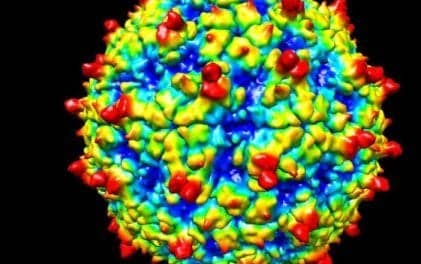Depression and anxiety in the parents of children with asthma have been associated with increased clinic visits and asthma-related hospitalizations. According to research published in the Journal of Allergy and Clinical Immunology, curbing depression among these caregivers improves control of asthma and lung function, partially through effective treatment of the child’s own depression.
“…Asthma is a medical illness that is sensitive to a patient’s mood as well as medication adherence,” said E. Sherwood Brown, M.D., Ph.D., M.B.A., Professor of Psychiatry at UT Southwestern Medical Center and in the Peter O’Donnell Jr. Brain Institute, and corresponding author of the paper.
Stress and depression in asthmatic children can cause airway constriction and worsen symptoms through dysregulation of the nervous system. Poor asthma control may then exacerbate a child’s depression. High rates of depression among caregivers may additionally stress the children, further worsening their depressive symptoms and asthma control.
Research by Dr. Brown and others has shown that alleviating depression in adults with asthma is associated with better asthma control and further suggests that treatment of depression in mothers improves the mood of their children. Given these findings, the researchers wanted to determine if improvement in caregiver depression might be associated with improvement in the child’s asthma, explained Dr. Brown.
The research team followed caregivers with major depressive disorder and their children with persistent asthma for one year. The results demonstrated that improvement in caregiver depression was associated with fewer asthma attacks and better asthma control for children. Improvement in asthma control occurred, in part, through reduction in the youngsters’ depressive symptom severity.
Overall, the findings suggest that a caregiver’s mood can influence control of a medical illness in a patient.
Dr. Brown said health care providers may need to think more broadly when treating patients. “It might be useful to screen for depression both in children with asthma and their caregivers,” he said. “Identifying depression in the caregiver and providing effective treatment might help improve asthma control in the child.”
The findings are notable for lung disorder experts who often see depression in their higher-risk asthma patients, said Andrew Gelfand, M.D., a UT Southwestern pulmonologist not involved in the study. In cases involving depression, doctors commonly bring in psychiatrists or increase medications if the patient’s asthma symptoms aren’t improving.
“However, this study defines another opportunity to screen for and improve patient care,” said Dr. Gelfand, Associate Professor and Division Chief of Pediatric Pulmonology and Sleep Medicine at UT Southwestern. “It’s not just the patient’s mental health that can improve their outcomes; screening their parents for depression can also be a critical step in improving the outcomes of our poorly controlled asthmatics.”










